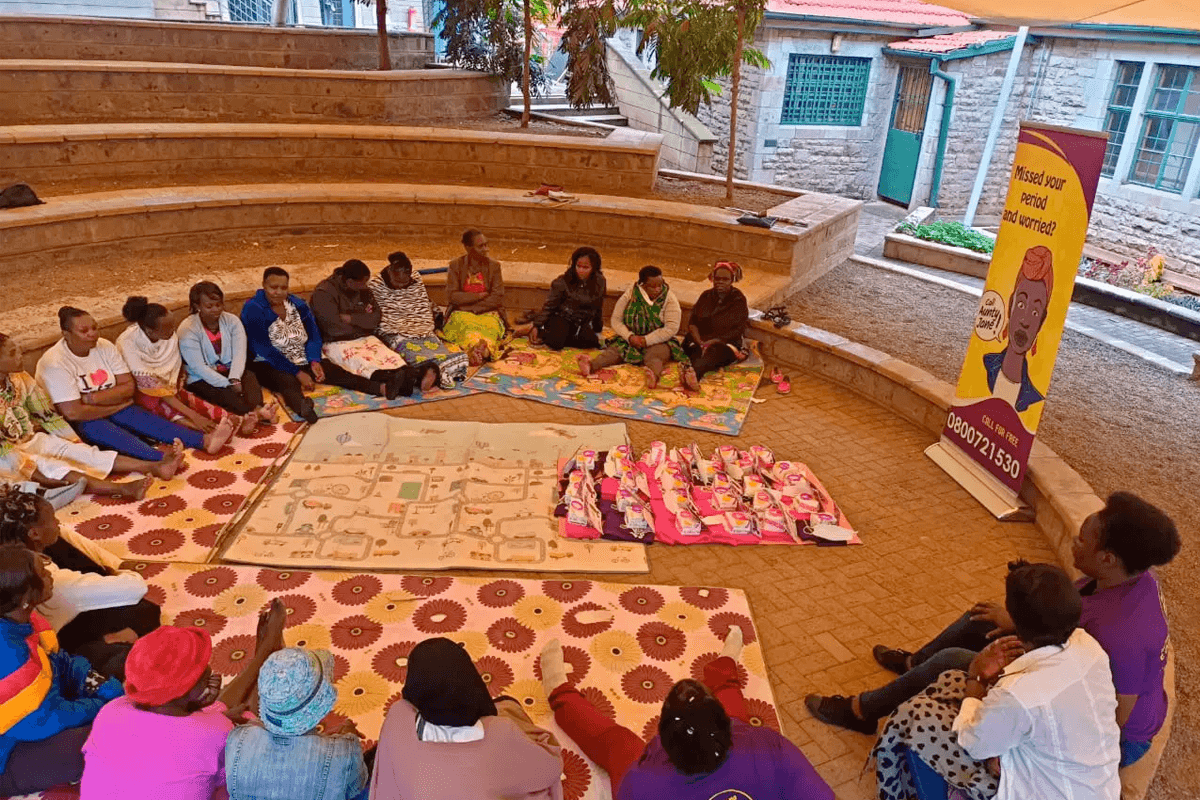
In a leafy Nairobi suburb, all that breaks the soft silence is the insistent ringing of the phone inside an office decorated with posters promoting sexual and reproductive rights.
Picking up that phone are the team behind Aunty Jane, a hotline which provides support for anyone with questions about their sexual and reproductive health, including how to access safe and legal abortion care.
“The hotline gets calls from teenage girls asking about menstruation, older women asking about the menopause, but the majority of calls are about accessing abortion,” explains Adhiambo, programme coordinator with an organisation that supports Aunty Jane. “The youngest caller we had was 11, the oldest was around 50. About half of our callers are in Nairobi, including in the informal settlements, while the other half are around the country, in more rural areas”.
According to Kenya’s constitution, abortion is not permitted unless a health professional believes there is need for emergency treatment, or the life or health of the mother is in danger, or if permitted by any other written law.
“One thing we acknowledge is that information provision and access is not limited under the law,” explains one counsellor. “We are aware of the fact that access to information, including emergency healthcare and reproductive healthcare is a provision of our law. That forms the basis of the information we provide at the hotline, because of course, we don’t want to be in conflict with what the law provides for.
“The hotline has trained counsellors, not medical providers. To make sure women and girls know that Aunty Jane is on the end of the phone, the organisation adopts multiple strategies to raise awareness – from social media campaigns to sending community outreach workers into informal settlements to talk directly to women. “We use posters, stickers, Facebook and conversations. Aunty Jane information can even be found in period pad packaging.”
Crucial to the solution that Aunty Jane offers “is assessing and providing information so that women can make the right decision for themselves. It’s about a woman’s choice, and our counsellors are trained to support that”.
The need for the feminist solutions offered by Aunty Jane could not be more urgent in Kenya, where nearly seven women a day die due to unsafe abortion. In Nakuru, a small rural city that sits on a lake where flamingos and buffalo flock, a young student describes women in her university drinking disinfectant to induce miscarriage. Aunty Jane hears stories of women inserting objects into their vagina to end an unwanted pregnancy.
Just over 200 miles from Nairobi, in the rural city of Kisumu, and the risks of teenage pregnancy are high on the agenda for the African Youth Action Network (AYAN). The organisation offers support and advice to young people across a whole range of issues, including reproductive and sexual health, and sexuality.
Both Aunty Jane and AYAN have suffered backlash, often daily, from anti-abortion groups and individuals determined to repress information about sexual and reproductive healthcare.
SOURCE: The Ferret, by Sian Norris, 20 June 2023



